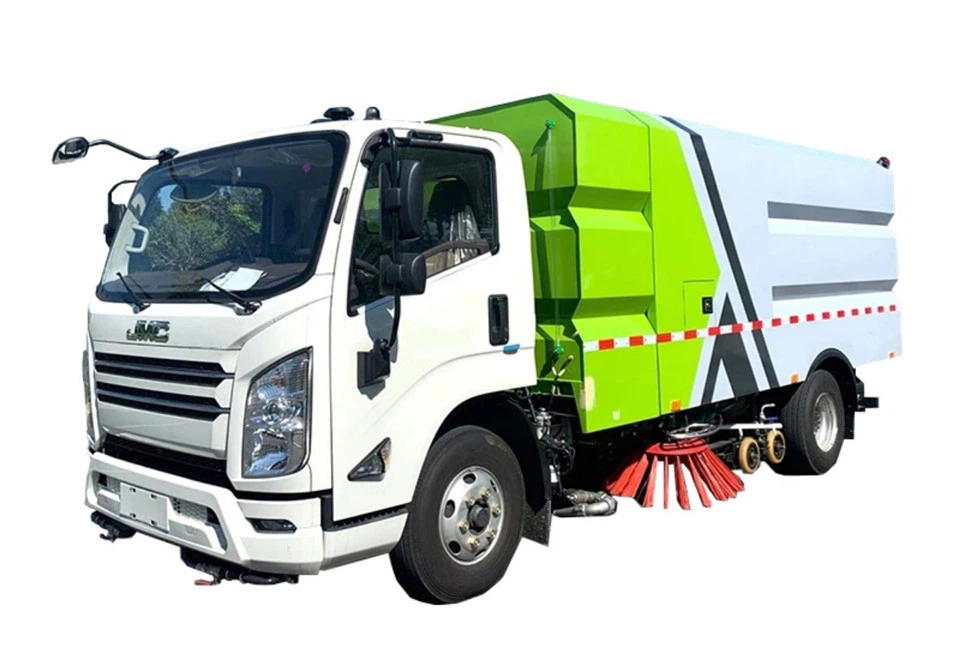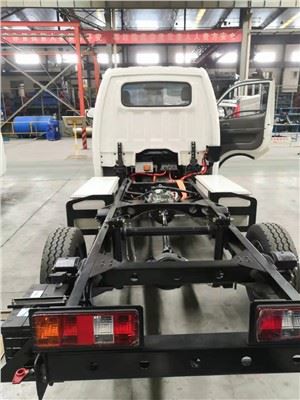Sewage Truck for Sale: Your Ultimate Guide to Purchasing and Owning a Vacuum Truck

Introduction
When it comes to managing waste and ensuring clean sanitation, sewage trucks play a vital role in various industries ranging from municipal waste management to construction sites. If you’re considering investing in a sewage truck, understanding its features, benefits, maintenance, and best purchasing practices is essential. In this comprehensive guide, we will explore everything you need to know about sewage trucks for sale, helping you make an informed decision that suits your needs.
What is a Sewage Truck?
A sewage truck, also known as a vacuum truck or suction truck, is designed for the transportation of liquid waste such as sewage, sludge, and other hazardous materials. These trucks are equipped with a large tank, a pump system, and a hose that allows for the suction and transfer of waste efficiently. Understanding the different types of sewage trucks and their features will help you choose the right one for your needs.
Types of Sewage Trucks
- Conventional Vacuum Trucks: These are designed with a tank and a vacuum pump that creates suction power for waste removal.
- Combo Trucks: Combining jetting and vacuuming capabilities, these trucks can clean and remove solid waste simultaneously.
- Hydro Excavation Trucks: Ideal for digging, these trucks use high-pressure water jets to liquefy soil for easy removal.
- Sewer Cleaning Trucks: Designed specifically for cleaning sewer systems, featuring specialized equipment for unclogging and maintaining sewer lines.
Key Features of Sewage Trucks
When shopping for a sewage truck, it’s important to know the key features that differentiate one model from another. Here are some essential components to consider:
1. Tank Capacity
The tank capacity is crucial because it determines how much waste your truck can carry. Capacities can range from 500 to over 3,000 gallons, depending on the model. A larger capacity will reduce the number of trips needed to dispose of waste.
2. Pump System
The pump system’s power and efficiency significantly affect the truck’s performance. Look for models with high-quality vacuum pumps capable of generating sufficient suction to handle different waste types.
3. Hose Length and Diameter
The hose length and diameter affect how far and how quickly waste can be suctioned. A longer and wider hose generally allows for more efficient operation in varying conditions.
4. Build Quality
Durability is paramount in sewage trucks. Look for trucks made from high-quality materials resistant to corrosion and wear, as they will experience harsh conditions.
5. Ease of Maintenance
Choose a truck that is easy to service. Features like accessible parts and a straightforward design can simplify maintenance and reduce downtime.
Benefits of Owning a Sewage Truck
Investing in a sewage truck can yield several benefits for your business, which include:
1. Cost Efficiency
Owning your sewage truck eliminates the need for frequent rentals, saving your business money in the long run. Additionally, having a truck on hand allows for immediate response to sewage needs.

2. Increased Revenue
With a sewage truck, you can expand your service offerings, including emergency pumping, sanitation services for events, or construction site waste management, allowing you to tap into new revenue streams.
3. Enhanced Service Reliability
Having a dedicated sewage truck ensures that you can meet your customers’ needs promptly, enhancing customer satisfaction and building your reputation in the industry.
4. Compliance with Regulations
Owning a sewage truck enables you to comply with local regulations regarding waste disposal and environmental responsibilities, ensuring sustainable practices.
How to Choose the Right Sewage Truck
Selecting the right sewage truck requires careful consideration of several factors:
1. Determine Your Needs
Assess the type of waste you will be handling, the frequency of use, and the volume of waste you typically encounter. This will help narrow down the options.
2. Budgeting
Establish a budget that includes not only the purchase price but also maintenance costs, insurance, and operational expenses. Be sure to compare both new and used options.
3. Research Brands and Models
Look for reputable brands known for reliability and quality. Read reviews and reach out to current owners to gather insights into performance and customer service.
4. Inspect Before Buying
If buying used, always inspect the truck. Check the tank, pump system, hoses, and overall condition for any signs of wear and tear.
5. Test Drive
If possible, take the truck for a test drive to assess its handling and comfort, as well as how effectively the pump operates.
Where to Find Sewage Trucks for Sale
With the right information, finding a sewage truck for sale is easier than ever. Here are some popular avenues you can explore:
1. Online Marketplaces
Websites like Truck Paper, Equipment Trader, and Facebook Marketplace often feature numerous listings from private sellers and dealerships.
2. Local Dealerships
Visiting local truck dealerships can provide a firsthand look at available models. Reputable dealerships often offer warranties and financing options.
3. Auctions
Attend equipment auctions where used trucks may be sold at competitive prices. Ensure that you evaluate the trucks beforehand.
4. Networking
Engaging in industry networking events, social media groups, and forums can help you connect with sellers or learn about upcoming sales.
Financing Your Sewage Truck Purchase
Most buyers consider financing options when purchasing a sewage truck. Here are some common financing methods:
1. Bank Loans
Securing a loan from a bank or credit union can provide you with the funds needed upfront, allowing you to pay it back over time with interest.
2. Manufacturer Financing
Many manufacturers offer financing or leasing options, which can include competitive rates. Evaluate their terms and conditions carefully.
3. Equipment Leasing
If you’re not ready for a full purchase, leasing might be a good option to consider. This allows you to use the truck while making monthly payments without a large initial investment.
4. Grants and Assistance
Check with local government programs or nonprofit organizations that might provide grants or support for environmentally friendly equipment purchases.
Maintenance Tips for Sewage Trucks
Proper maintenance is key to ensuring the longevity and efficiency of your sewage truck:
1. Regular Inspections
Conduct regular checks on the pump system, hose, and tank to identify any signs of wear or damage early on.
2. Cleaning the Tank
Regularly clean the tank after use to prevent build-up and ensure smooth operation. This process minimizes odors and reduces bacteria growth.

3. Change Filters
Keep an eye on filters within the pump system. Changing them regularly ensures optimal suction performance.
4. Follow the Manufacturer’s Service Schedule
Stick to the recommended service schedule provided by the manufacturer to prevent unforeseen breakdowns and costly repairs.
FAQ Section
1. What is the average cost of a sewage truck?
The cost of a sewage truck can vary widely based on the model, size, and whether it’s new or used. On average, prices can range from $25,000 to $150,000 or more.
2. How long does a sewage truck typically last?
With proper maintenance, a sewage truck can last between 10 to 15 years, although some models may last even longer depending on usage and care.

3. Can I finance my sewage truck purchase?
Yes, you can explore financing options through banks, dealerships, or manufacturers, allowing you to spread the costs over time.
4. How often should I service my sewage truck?
Routine maintenance should be performed every 3-6 months, but heavy usage may require more frequent checks. Adhering to the manufacturer’s guidelines is crucial.
5. What should I look for when inspecting a used sewage truck?
Inspect the tank for rust or corrosion, check the pump’s performance, examine hoses for wear, and look for overall vehicle condition, including engine and transmission health.
6. Are there specific regulations for using sewage trucks?
Yes, regulations vary by location, but generally, there are guidelines regarding waste disposal, environmental protection, and vehicle operation that must be adhered to.
